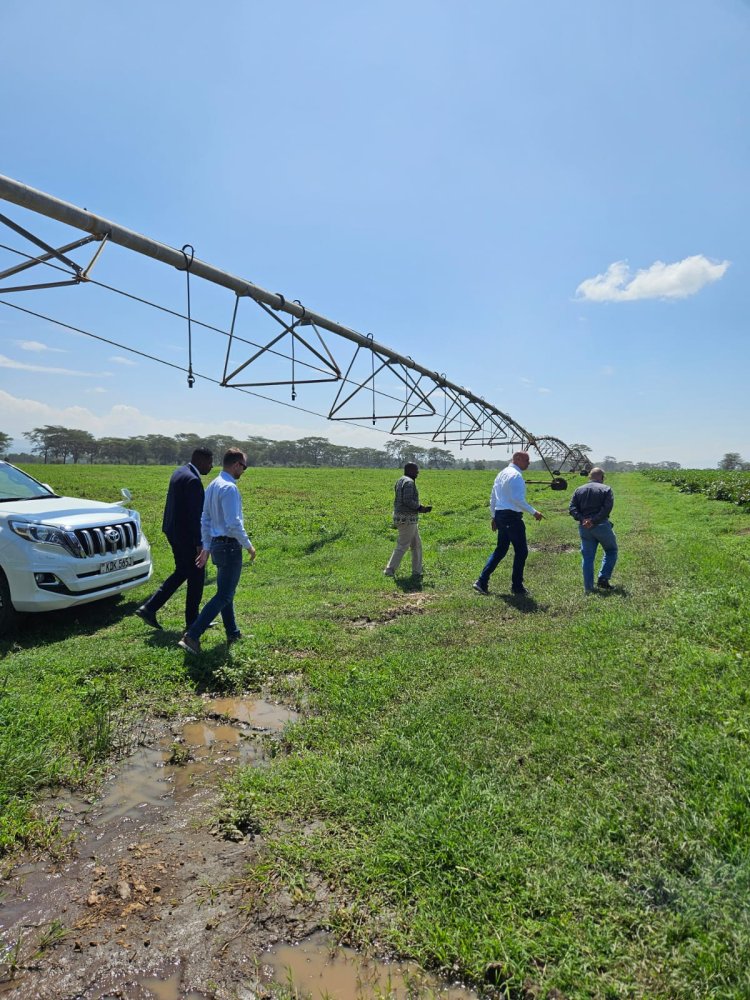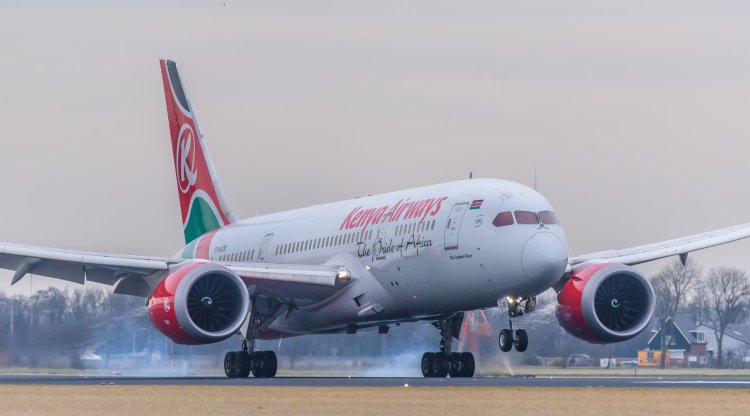Ruto Govt Bags Ksh16B Deal With Italy To Introduce New Fuel For Jets
The new deal was secured by the Principal Secretary (PS) of the State Department for Investment Promotion Abubakar Hassan Abubakar with the Italian firm, Enrico Travelini.

President William Ruto's government on Tuesday, January 23 struck a deal with Italy that will see Kenya produce biofuel to power the country's jets as it moves to tackle climate change.
The new deal was secured by the Principal Secretary (PS) of the State Department for Investment Promotion Abubakar Hassan Abubakar with the Italian firm, Enrico Travelini.
Abubakar had successfully convinced Travelini to invest over Ksh16.3 billion (USD100 million) into castor farming which is seen as an alternative to earn an income.

PS Abubakar Hassan Abubakar with Italian investors on Tuesday, January 23, 2024. /HASSAN ABUBAKAR
"Castor farming is an alternative crop for farmers in semi-arid areas to earn a decent living. Led by Enrico Travelini we have Facilitated Castor growing, extraction, and processing investment worth over $100 M from ENI, Italy, the second largest oil producer in Europe to stimulate the socio-economic development of ASAL areas," Abubakar stated.
The PS added that the castor seeds harvested from the farm will be processed to produce non-edible vegetable oil which will be refined to produce biofuel.
The end product will be used to power Kenya's jets and other aircraft, thus turning the country into an aviation leader in Africa.
PS Abubakar made the announcement after visiting some farms picked to spearhead the castor farming project in the country.
"Today, I visited the 200 Hectares ENI multiplication of parental seeds farm in Marura, Naivasha that will be used to produce hybrid castor seeds with better yield to be distributed to almost 80,000 smallholder farmers who have been recruited in 15 counties for contract castor farming," the PS announced.
An aviation biofuel (also known as bio-jet fuel or bio-aviation fuel [BAF]) is a biofuel used to power aircraft and is said to be a sustainable aviation fuel (SAF).
The International Air Transport Association (IATA) considers it a key element in reducing the carbon footprint within the environmental impact of aviation. Aviation biofuel could help decarbonize medium- and long-haul air travel generating most emissions and could extend the life of older aircraft types by lowering their carbon footprint.
Biofuels are biomass-derived fuels from plants, animals, or waste; depending on which type of biomass is used, they could lower CO2 emissions by 20–98% compared to conventional jet fuel.
The first test flight using blended biofuel was in 2008, and in 2011 blended fuels with 50% biofuels were allowed in commercial flights. In 2019, the IATA was aiming for a 2% penetration by 2025.
65% of medium and long-haul flights are powered by ‘sustainable’ aviation fuels (biofuels) and 13% of short-haul flights could be powered by electric planes or hydrogen by 2050.
In terms of net zero, biofuels could power 100% of medium- and long-haul aviation by 2050. Electric and hydrogen will power 50% of short-haul flights, with the rest powered by biofuels.
Notably, national carrier Kenya Airways in May 2023 flagged off its maiden flight running on biofuel made by Italian energy firm Eni as the carrier tests sustainable aviation fuel.
The Boeing 787-800 (B787-8) Dreamliner that took off from the Jomo Kenyatta International Airport (JKIA) to Amsterdam’s Schiphol Airport was powered by jet fuel mixed with biofuel manufactured by Eni, a flight that marked the latest push for a shift to low-emission fuels in the aviation sector to combat climate change.


 admin
admin 




